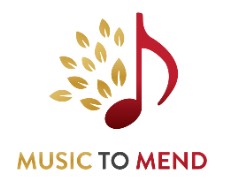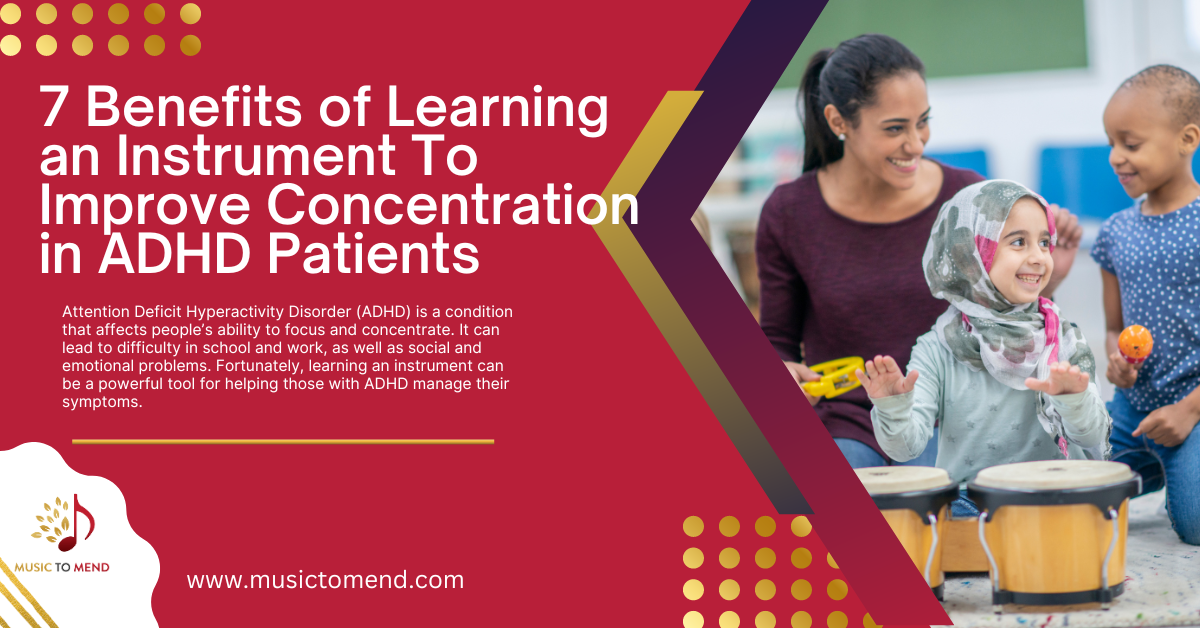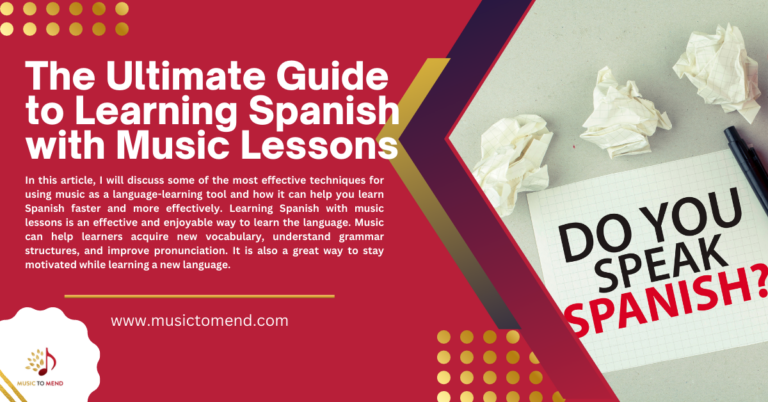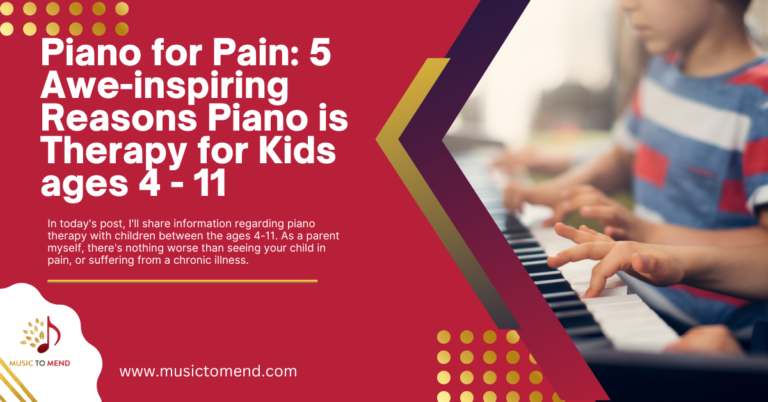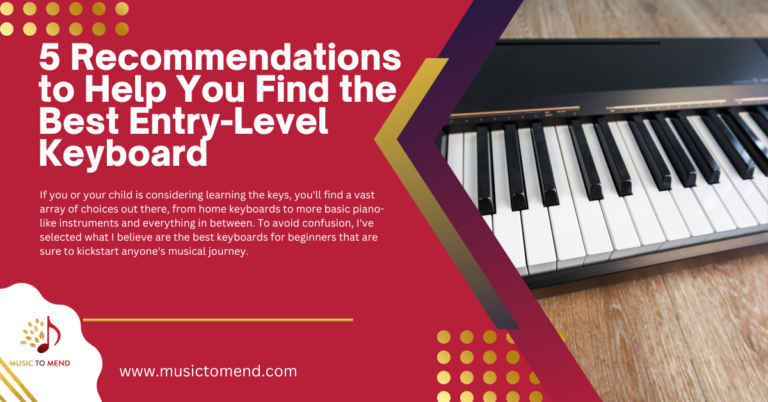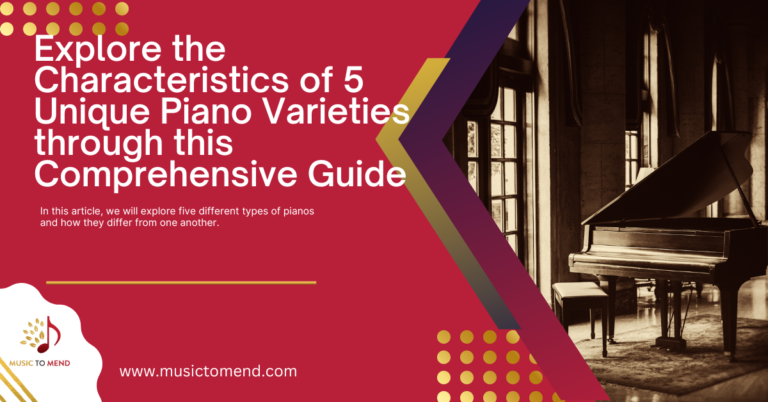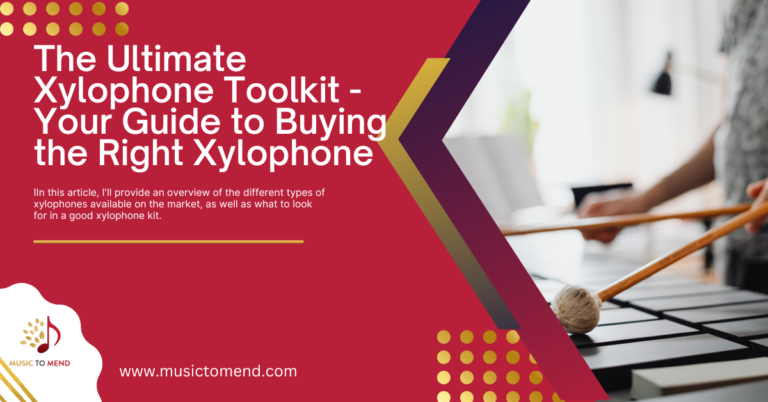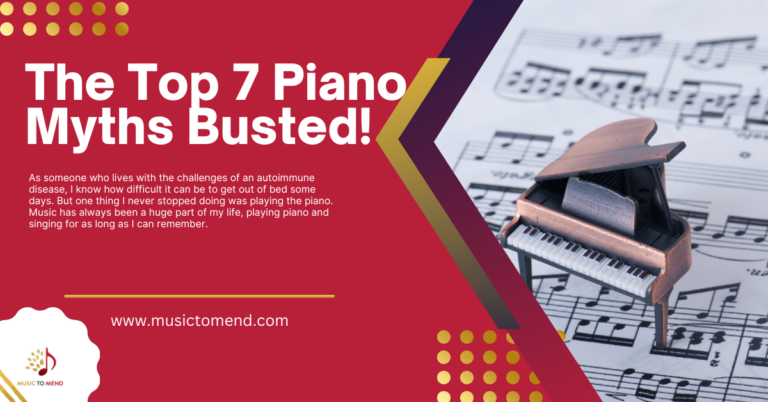7-Amazing Benefits of Learning an Instrument To Improve Concentration in ADHD Patients
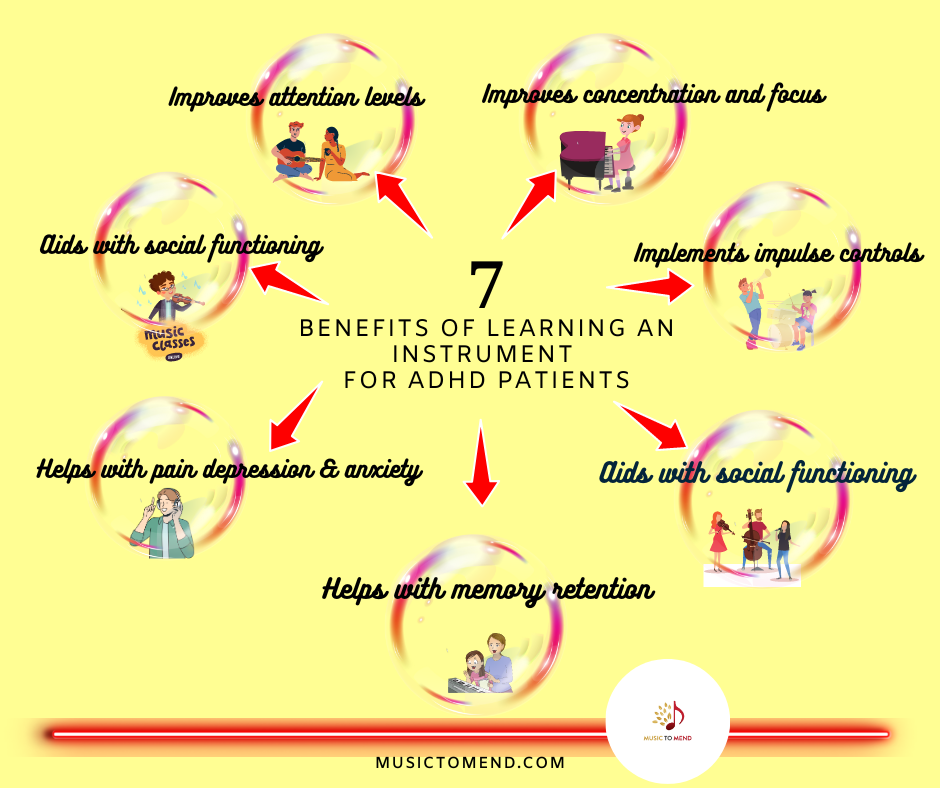
What is ADHD and How Does Learning an Instrument Help?
Attention Deficit Hyperactivity Disorder (ADHD) is a condition that affects people’s ability to focus and concentrate. It can lead to difficulty in school and work, as well as social and emotional problems. Fortunately, learning an instrument can be a powerful tool for helping those with ADHD manage their symptoms. Music therapy has been shown to improve cognitive development, increase focus and concentration, reduce anxiety, and promote positive social interactions. Instrumental learning can also provide an outlet for creative expression which allows individuals with ADHD to express themselves in a way that they may not be able to do otherwise. By taking up an instrument, those with ADHD can learn how to manage their attention deficit hyperactivity disorder better while also enjoying the therapeutic benefits of music.
7 Benefits of Learning an Instrument to Help with Concentration Issues in ADHD Patients
Learning to play an instrument can be a great way to help ADHD patients focus and concentrate better. Musical training has been proven to improve cognitive skills, such as memory, language, problem-solving and attention. Furthermore, music education is known to have a positive effect on the emotional well-being of ADHD patients. It helps them become more aware of their surroundings and teaches them how to stay focused on tasks for longer periods of time. With regular practice and dedication, learning an instrument can be a great way for ADHD patients to improve their concentration levels and lead a more fulfilling life.
- Music improves attention levels in both children and adults
- Music improves concentration and focus
- Music implements impulse controls
- Music aids with social functioning
- Music improves self-expression and self-esteem
- Music helps with memory retention
- Music helps with pain management, depression and anxiety symptoms
ADHD patients wishing to reduce boredom and increase motivation can try mixing up their musical routines. Doing so plays a huge part in what can improve their well-being. Music therapy has also been described as an effective tool for alleviating symptoms experienced by many types of mental disorders. It’s been shown to be particularly effective in relieving anxiety and depression because it reduces levels of the stress hormone cortisol and elevates levels of the hormone oxytocin. Moreover, people who practice music regularly have higher levels of serotonin in the brain, which is related to mood stabilization. This can make music therapy a powerful tool for people struggling with mental illness. Moreover, research has found that music therapy provides relief from pain in people who have chronic conditions and physical disabilities. The same can be said for helping with sleep disorders, such as insomnia and apnea. Other research has suggested that music therapy is effective when it comes to improving mood, cognition, and memory in both children and older adults. The benefits of music therapy are vast enough that the American Music Therapy Association is currently researching how to incorporate it into healthcare settings on a national level, including hospitals, nursing homes and rehabilitation centers.
How Music Helps ADHD Patients Develop Improved Memory & Attention Skills
Music has been used to help people with Attention Deficit Hyperactivity Disorder (ADHD) improve their memory and attention skills. Therapeutic techniques with music and musical education can reduce the symptoms of ADHD, enhance cognitive abilities, and provide a sense of accomplishment for those who are struggling with the disorder. Studies have shown that musical training can help ADHD patients develop better memory and attention skills, as well as improved academic performance. Additionally, music can provide an outlet for creative expression and a sense of connection to others. Music has also been shown to reduce stress levels and improve mood. Music can help people with ADHD to develop better memory and attention skills, as well as improved academic performance. There are multiple studies that have shown that musical training can help ADHD patients develop better memory and attention skills, as well as improved academic performance. Additionally, music can provide an outlet for creative expression and a sense of connection to others. Music has also been shown to reduce stress levels and improve mood.
What Are the Best Musical Instruments For Improving Concentration In ADHD Patients?
ADHD is a common disorder that affects millions of children and adults. Many individuals with ADHD struggle to focus, which can make learning and completing tasks difficult. However, playing musical instruments can help improve concentration in these patients. Engaging in a creative activity like playing music, it can help them stay focused and increase their attention span.
If you have ADHD, it is important to listen to music while carrying out tasks that require concentration in order to maintain focus. There are many different instruments that can help people with the disorder to maintain concentration and focus. Some of these instruments include:
Voice: Singing is an excellent instrument for those with ADHD because it requires no physical movement and is relatively easy on the voice because there are no risks involved when singing. People with this disorder will often find that singing helps them relax and concentrate on tasks more easily than other instrumentalists or vocalists would be able to do.
Listening to music: Listening to music is popular for both people with ADHD and individuals who do not have the disorder. This helps individuals focus on the tasks at hand by providing a feeling of structure and rhythm for those trying to accomplish tasks such as writing or doing homework. It may also be helpful for people with ADHD because the tempo of many songs can help them regulate their own pace when performing tasks. Some individuals might find that listening to music helps make completing activities more enjoyable, which can increase motivation. There is no evidence to suggest that people with ADHD cannot learn other instruments or have problems playing specific chords or melodies. If a person has trouble learning a new skill, it may be because of the limitations associated with their disorder and the inability to remain focused on an instrument for a long period of time.
Playing the Piano: Playing the piano can help you improve your concentration and problem-solving abilities. It is a great way to exercise your mind and sharpen your focus. It also helps you learn to think more critically and creatively, which are essential skills for solving problems. Learning how to play the piano also helps you develop better coordination and motor skills, which can be useful in many other areas of life. Furthermore, playing the piano is a great way to relax and de-stress after a long day of work or school. With dedicated practice, anyone can learn to play the piano and reap these benefits!
Playing the Violin: Learning how to play the violin has been proven to have a positive impact on cognitive development and mental health. Studies have shown that playing the violin can improve memory, concentration, and problem-solving skills. It also helps reduce stress, anxiety, and depression. Playing the violin can also help people develop better self-discipline and increase their creativity. Additionally, learning an instrument like the violin can create a sense of accomplishment and provide an outlet for self-expression.
Conclusion
Learning to play a musical instrument can be an incredibly rewarding and enriching experience. Whether you are a beginner who has ADHD or a seasoned musician, it is never too late to start learning an instrument. With the help of modern technology, those diagnosed with ADHD can learn to play instruments online from the comfort of your own home. There are many different types of musical instruments for beginners that can help you get started on your journey. From traditional acoustic guitars to digital keyboards, there is something out there for everyone. Deciding which one is best for you will depend on your individual goals and preferences. With so many options available, it can be difficult to know where to start, but with the right guidance and motivation, anyone can become a master musician!
